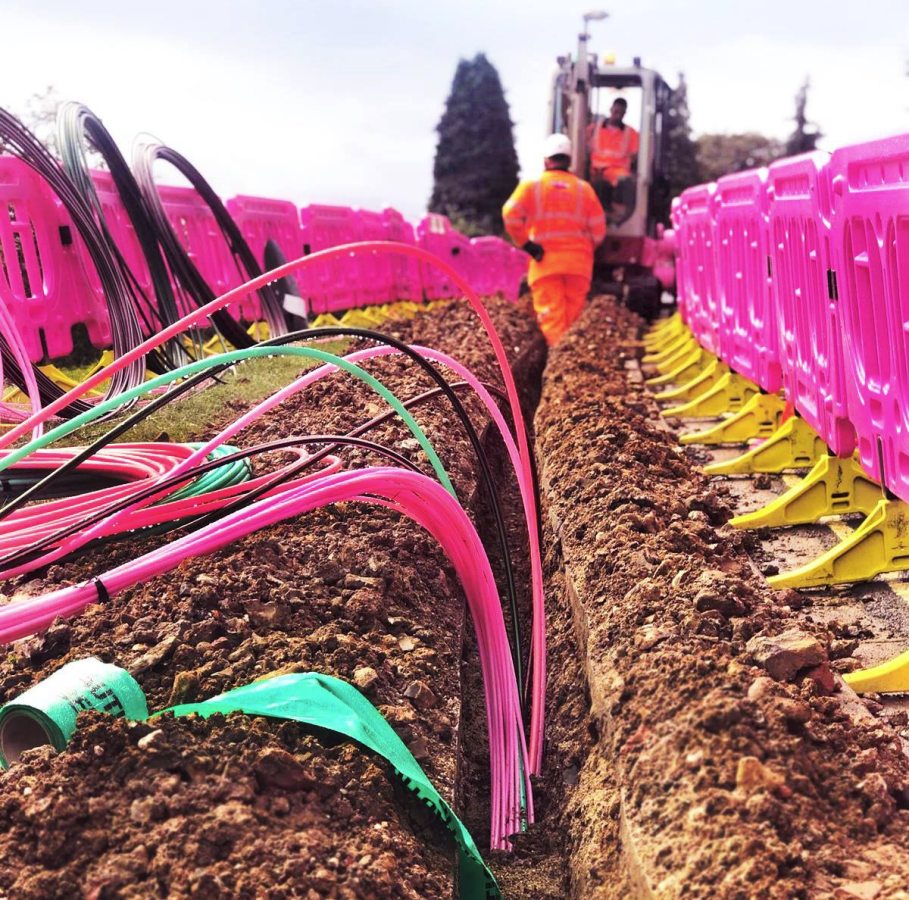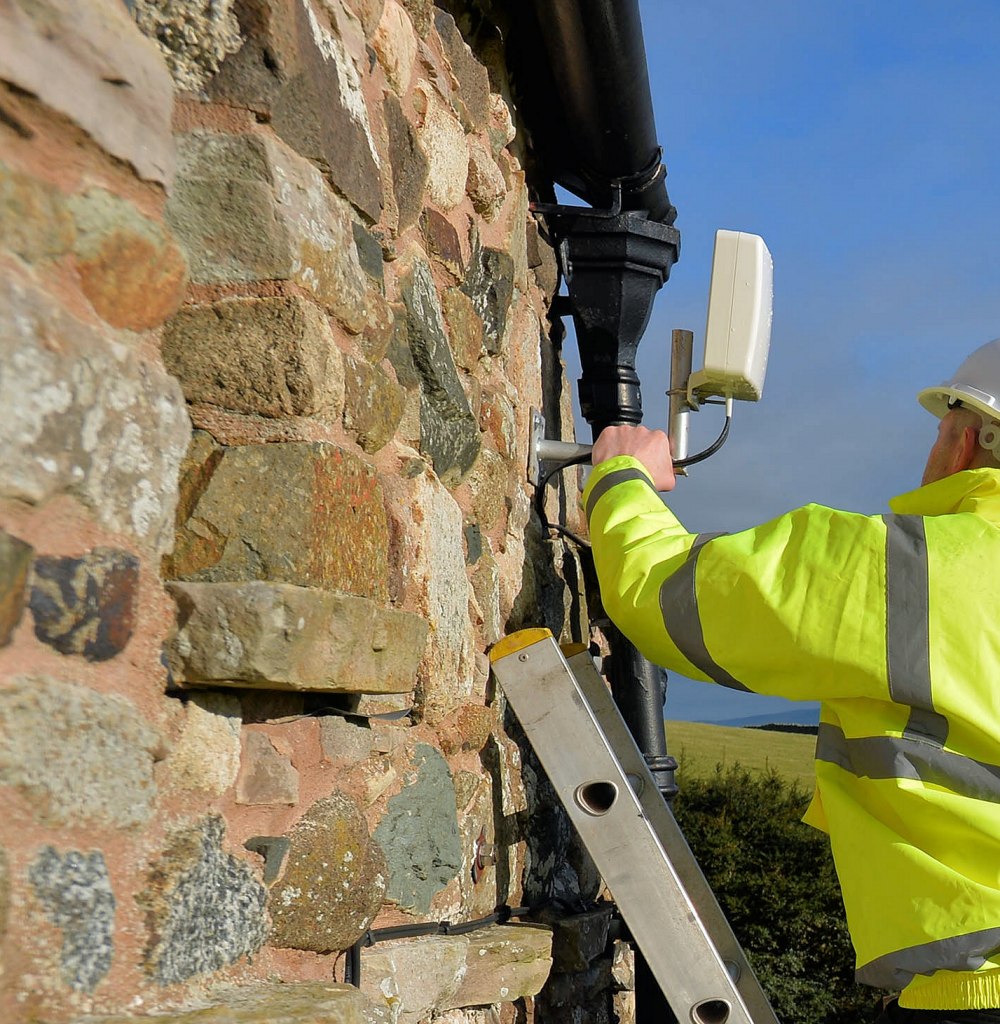UK ISP Association Sets Out Telecoms Priorities for Next Government

The Internet Services Providers’ Association (ISPA), which is a trade body that represents UK broadband ISPs and related comms providers, has today set out the key strategic priorities and actionable policies that it thinks the next UK Government will need to focus on in order to continue the work of “transforming the nation’s digital infrastructure”.
Unless you’ve been living under a particularly large rock, or in an entirely different country, then you probably already know that the United Kingdom is about to go through a General Election on 4th July 2024. As things stand, the polls appear to be indicating that a change of Government is likely to be the outcome, which could naturally have an impact upon policies and approaches to digital infrastructure.
The looming election has already seen various internet providers and related organisations setting out what they think the next government, whatever form it may take, should be focusing upon. For example, BT’s CEO has called for improvements to planning policy (here) and Mobile UK, which represents mobile operators (Three UK, Vodafone, O2 and EE), has echoed some similar points (here).
Today it’s the turn of the ISPA and their 2024 policy roadmap – ‘Delivering Digital Britain‘, which sets out three of the key areas that they think the next government should focus on. Once again planning and related measures, like flexi permits, seem to be top of the list.
The UK ISPAs 3 Policy Priorities
➤ Recognise telecoms infrastructure rollout as a cross-governmental priority.
Fixed, mobile and wireless connectivity rollout is strategically important to digitisation and long-term economic growth, yet too oen progress is impeded by a lack of coordination between Government departments, with misaligned priorities across DSIT, DfT and DLUHC.
The next Government must integrate fixed and mobile rollout into cross-governmental policy by developing a clear and ambitious overarching strategy for the sector that brings together network build, skills, investment, take up, regulation and services, led by a suitably senior digital minister within DSIT, with a key focus on policy development and rapid delivery.
➤ Provide an immediate speed boost to rollout by fully embracing flexi permits and cancelling plans for street works charging.
Streetworks remain a key barrier to fixed and mobile connectivity rollout. Despite being widely supported by the sector, flexi permits – designated areas rather than individual roads can be combined into one permit for streetworks – have so far only been rolled out on a limited trial basis. Initial trials have shown the huge potential for reducing administrative burdens and disruption for communities.
The implementation of flexi permits would see considerably faster rollout with less disruption for local residents, and substantial carbon saving in the deployment of gigabit broadband. Government should urgently adopt this ready-made solution by moving to national trials or full adoption, alongside cancelling plans to progress the Fines and Lane Rental Surplus Funds consultation, which will only impede efforts to connect the final 30%.
➤ Commit to ensuring an efficient and proven infrastructure planning framework.
Around one third of the UK still needs to be upgraded, mostly in harder to connect areas where government funding will play a bigger role. The new Government should commit to a supportive planning framework that makes rollout faster and more efficient, removing rather than adding barriers.
This includes extending permitted development rights for all broadband infrastructure, including containerised exchanges. These, along with cabinets and poles, are all crucial building blocks of the success of fibre rollout in the UK. The sector has formed a working group to address localised public concerns in relation to the siting of new infrastructure, but it’s vital that existing permitted developments rights are strengthened and maintained in order to ensure that public and private funded rollout can continue at pace.
In addition, the government should use the breathing room offered by the election and consult with all relevant sectors before reintroducing plans to put the National Underground Asset Register (NUAR) on a statutory footing to ensure that NUAR is fit for purpose, proportionate and can fully deliver on expectations.
The sector also needs urgent confirmation from the government that regulations surrounding telegraph pole coating in England and Wales are aligned with Northern Ireland and the European Union, in order to provide greater supply chain certainty for the sector’s suppliers operating across all three areas.
Steve Leighton, Chair of the ISPA, said:
“We are excited to unveil ‘Delivering Digital Britain,’ our 2024 roadmap which outlines crucial steps for the next government to ensure that our members can continue to deliver the infrastructure and services that will help to unlock digital opportunities and drive economic growth across the country.”
The industry naturally wants to see anything that will make the job of deploying new broadband and mobile networks easier and cheaper, which is something that many consumers could also get behind. Similarly, some changes, like flexi-permits, seem likely to be less contentious than others, such as anything that might soften planning a bit too much.
The last point above is key because over the past couple of years there’s been a strong movement against the deployment of new poles for broadband. At the same time, mobile networks operators have long struggled with similar opposition to new mast sites. The issues around new poles have already grown to become somewhat of a political issue (here and here), which has seen a good number of cross-party MPs echo related complaints and the government move to propose greater oversight / clearer guidance.
Suffice to say that the next government probably won’t have as much political freedom to make life too much easier on the planning front. But at the same time, if they go in the opposite direction and impose new restrictions, then that could risk seriously damaging the current coverage targets for gigabit-capable broadband and 4G/5G mobile services – this might end up disproportionately impacting those in the hardest to reach (rural) areas.
Mark is a professional technology writer, IT consultant and computer engineer from Dorset (England), he also founded ISPreview in 1999 and enjoys analysing the latest telecoms and broadband developments. Find me on X (Twitter), Mastodon, Facebook and Linkedin.
« Oxfordshire UK’s GigaHubs Full Fibre Build Connects 180 Sites
Latest UK ISP News
- FTTP (5668)
- BT (3551)
- Politics (2583)
- Openreach (2333)
- Business (2311)
- Building Digital UK (2265)
- FTTC (2056)
- Mobile Broadband (2021)
- Statistics (1818)
- 4G (1708)
- Virgin Media (1659)
- Ofcom Regulation (1488)
- Fibre Optic (1418)
- Wireless Internet (1412)
- FTTH (1382)























































Privacy Notice: Please note that news comments are anonymous, which means that we do NOT require you to enter any real personal details to post a message. By clicking to submit a post you agree to storing your comment content, display name, IP, email and / or website details in our database, for as long as the post remains live.
Only the submitted name and comment will be displayed in public, while the rest will be kept private (we will never share this outside of ISPreview, regardless of whether the data is real or fake). This comment system uses submitted IP, email and website address data to spot abuse and spammers. All data is transferred via an encrypted (https secure) session.
NOTE 1: Sometimes your comment might not appear immediately due to site cache (this is cleared every few hours) or it may be caught by automated moderation / anti-spam.
NOTE 2: Comments that break our rules, spam, troll or post via known fake IP/proxy servers may be blocked or removed.